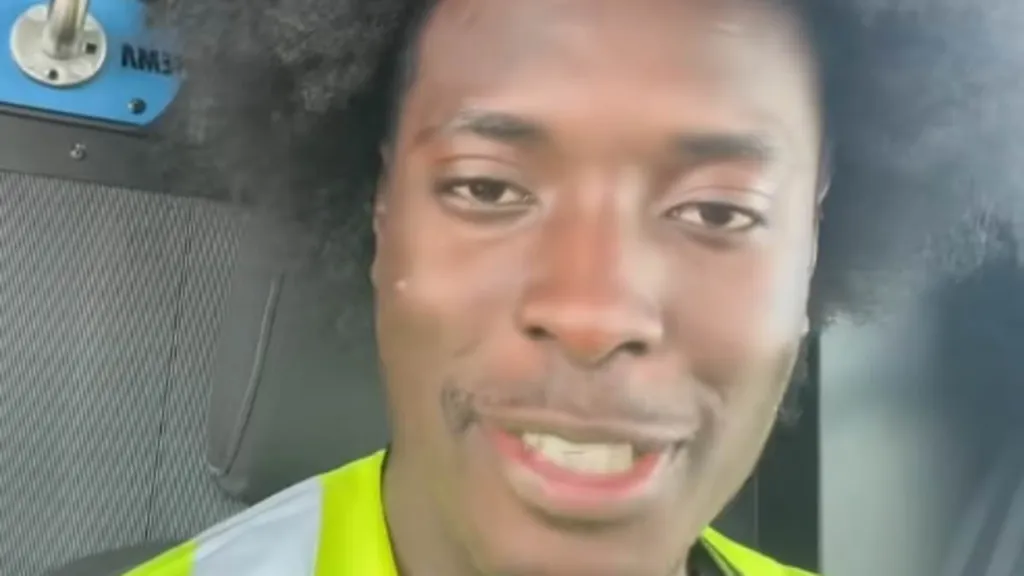Americans have admitted they were baffled to discover that 'Black Scottish people exist' - prompting hilarious reactions from the northern nation.
Creators across Glasgow, Edinburgh and all across the UK were left in disbelief after Yanks took to social media to admit their 'ignorance', with many also voicing their surprise at hearing the regional drawl from someone who is not white.
Those across the pond are now sharing their 'embarrassment' at not realising that diverse communities would exist all through the Highlands and beyond as well.
Meanwhile, Black Scots were in stitches at the confusion, as they affirmed that 'this accent comes in melanin too'.
'My friend was saying that Americans have found Black Scottish people and then I looked at my comments and they're literally flooding my comments about "we found you" - girl, I've been here!' creator Erica Moura shared in a video.
'We've been here for years, you just don't recgonise us.'
'Welcome to Black Scottish TikTok - I'm going to slow down so you can understand me,' influencer Starboy Fitness - whose initial clip on an entirely unrelated rant about the country's summer weather appears to have sparked the curiosity in the first place - joked in another clip.
'My new Transatlantic followers are having a hard time following along, at least that's what they're saying in the comments.
In another post, Manny Daphey questioned: 'What is it with all these American people just now finding out about Black Scottish content creators?'
'Yes I am Black, yes I am Scottish... 43 years born and raised in Scotland, hundred per cent Scotch beef right here.'
In another post, Manny Daphey questioned: 'What is it with all these American people just now finding out about Black Scottish content creators?'
'This is genuinely new, I feel so special right now,' he quipped. 'I'm looking through my comments and some of them are just like "y'all exist?" It's like, aye, we do.'
Another social media star BashTheEntertainer made his own TikTok addressing that he is indeed a proud Black Scottish man.
'Do I eat haggis, aye I f*ing do,' he added enthusiastically.
Many Black commenters from the US couldn't believe what they were hearing, with some writing: 'I didn't know we came in this format.'
Another penned: 'You DO NOT look like this accent! I'm absolutely shocked!! Keep talking bro!'
In other videos, some had further queries asking: 'I honestly didn't know there were Black Scottish people! Are there Black Irish people?'
However in most cases, those across the pond were absolutely delighted by the education voicing their joy at their feeds being 'full of Black Scottish people'.
In some instances, it also caused further debate about what it means to have a Black identity in Scotland and how the community can face racism and intolerance across the UK.
As documented by The John Gray Centre - which connects East Lothian Council's archaeology, museum, archive and local history services, 'the identity of Black Scottish people has evolved since the arrival of Black people in Scotland as early as the 15th century'.
Historians believe that the 1400s and 1500s saw many African communities, including 'high-status members of the royal entourage' arrive, and throughout the 1800s, Scotland's docks were among those that took part in the transatlantic slave trade with the West Indies and Africa.
According to the Scottish History Society, 'Scottish involvement was especially strong in Jamaica, where, by 1800, Scots owned some 30 per cent of estates'.
They added: 'Jamaica itself contained nearly 40 per cent of the West Indies' slave population and Scots were actively involved at all levels: as owners, investors, overseers, doctors and slaving crews.'
The 20th century also saw Black Scottish soldiers participation in both the first and second World Wars.
One of the more famous historical figures from this era is Black soldier Arthur Roberts, whose diaries and photos were discovered by a Glasgow couple in 2004, 22 years after his passing.
He had recounted harrowing experiences in combat - although, as per The John Gray Centre, there were 'no black troops included in the Peace March of July 1919, a victory parade held in London to mark the end of the war'.
Organisations in the country are also conducting initiatives tell the stories of the Windrush generation in Scotland.
A shared by the Heritage Fund, Windrush Scotland is 'a project run by Fair Justice System for Scotland (FJSS), which worked with the Windrush generation invited to Scotland between 1948 and 1971, their children and their grandchildren.
'The project highlighted evidence that Scottish African and Caribbean communities have often felt isolated from the work and events around Windrush elsewhere in the UK and it aimed to give greater recognition to their experience.
'With that in mind they worked towards creating an oral history archive and a suite of education materials to tell their story.
'It also created an opportunity to start a wider national conversation in Scotland addressing many issues including Windrush, historical injustice and the retention of traditional African and Caribbean values.'
